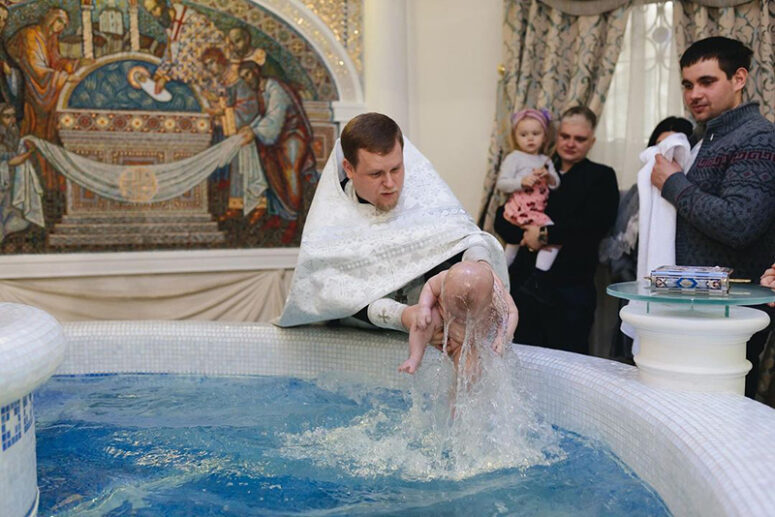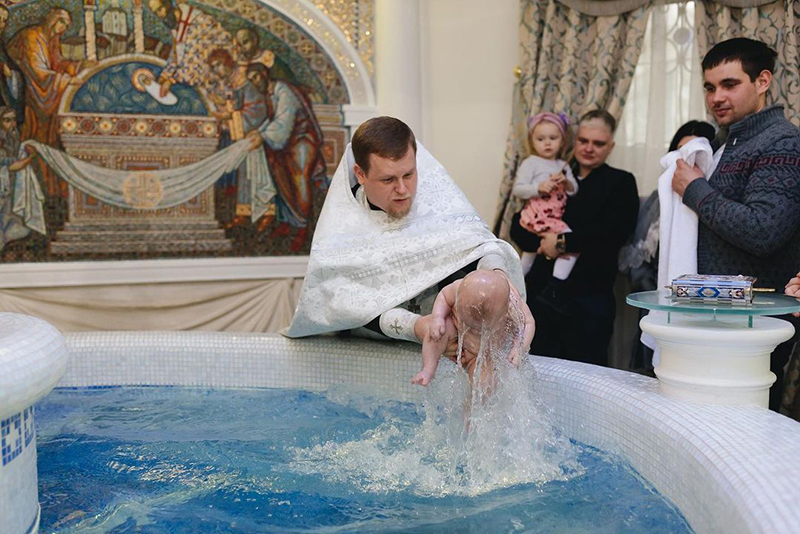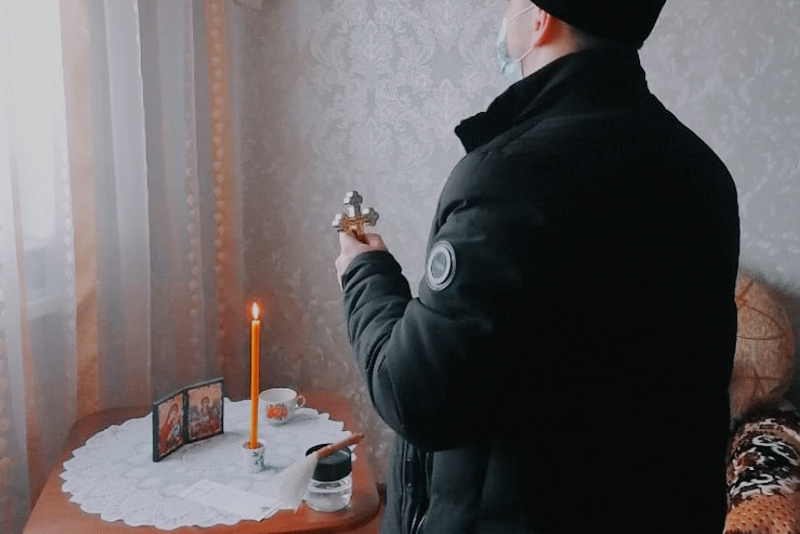
Q: Baptizing children in infancy and then imposing religious beliefs on them is a violation of their freedom of conscience. Isn’t it better to wait until they grow up and let them choose their own religion (if any)?
A: No, it is not. A mother begins to breastfeed her child without waiting for him to ask about it. And then this child is sent to school not because he wants to go there, but because it is necessary. From the most tender age, a person needs not only physical, but also spiritual food. Divine grace begins to affect a child long before he is able to realize it. Depriving a child of this grace-filled presence of God is unacceptable.
Parents try to pass the best of what they have on to their children. It is usually the parents who decide what school their child is going to attend, choosing between music, foreign languages, mathematics and other focus areas. Often, it is also the opinion or example of one or both parents that determines a child’s future profession. And this is a violation of neither freedom of choice nor freedom of conscience.
At the same time, when a child grows up, he can refuse to take up the profession offered to him by his parents and choose his own path in life. Similarly, he can change religion at a certain age. Unlike Islam, which is very strict towards those converting to other religions (in some Muslim countries, renunciation of Islam is punishable by death), Christianity presupposes preserving the freedom of choice throughout a person’s life.
Christianity does not impose itself on anyone. In his book The Philosophy of Freedom, Nikolai Berdyaev wrote, “Christ did not want any violence; His salvation is not by force; He wanted love and freedom; He affirmed the highest dignity of man. Christ appeared to the world in the image of the Crucified and was humiliated and tortured by the forces of this world… The whole meaning of Christ coming to earth is for the world to freely recognize and love the Lord in the image of the Crucified, seeing the divine power in the apparent vulnerability and helplessness”.
The baptism of an infant does not violate his freedom or personal boundaries; neither does it impose any choice on him. Baptism is a gift. Of all the gifts that parents give to their children, introducing a child to God is the best one. With maturity, a child has the right to refuse this gift. No one can forbid him that, not even the Church. Grieving of the lost sheep and praying for its salvation, the Church however does not and cannot have any means of forcibly holding anyone within itself. This would contradict the very spirit of Christianity as a religion of freedom.
The upbringing of a child in a Christian spirit does not mean imposing any religious views on him, unless it is done aggressively and resorts to certain elements of violence against the child’s personality. Orthodox presbyters urge parents to be thoughtful about the upbringing of children, so as not to turn their religious life into a heavy burden, which they will abandon at the first opportunity. On the contrary, church life should bring joy to the child, filling his heart with happiness from communion with God.
Revealing to a child the image of God as the loving Father is the main task of Christian education. Christian parents are called to teaching their children not so much by words as by their own example. In order for this example to inspire the child, parents should treat their religious life as a source of inspiration, instead of turning it into a hard routine for either themselves or their children.
Translated by The Catalogue of Good Deeds
Source: Metropolitan Hilarion of Volokolamsk. Tough Questions about Religion And the Church
https://jesus-portal.ru/life/blogs/neudobnye-voprosy-o-religii-i-cerkvi/krestit-detey-narushat-ikh-svobodu/




